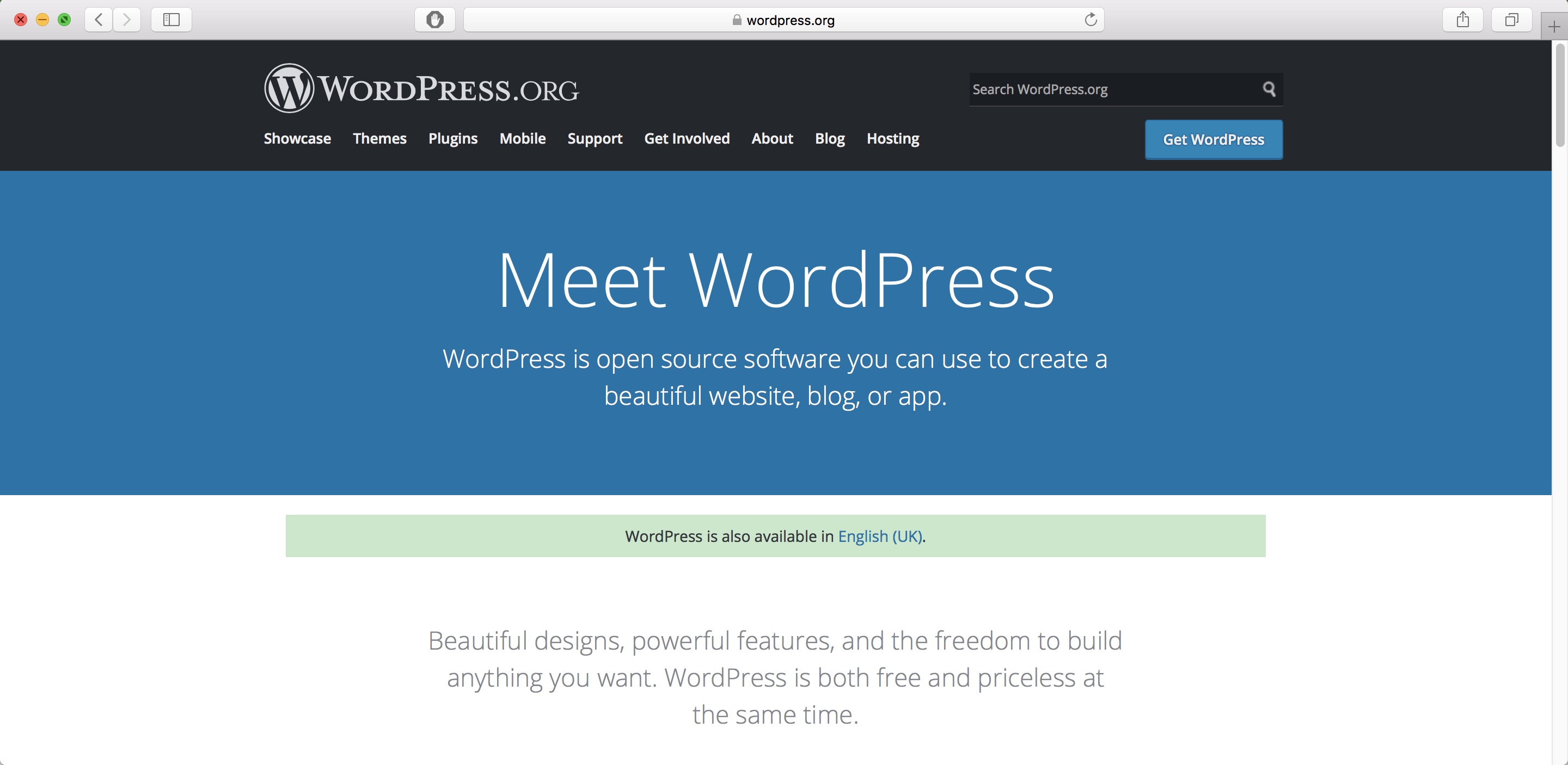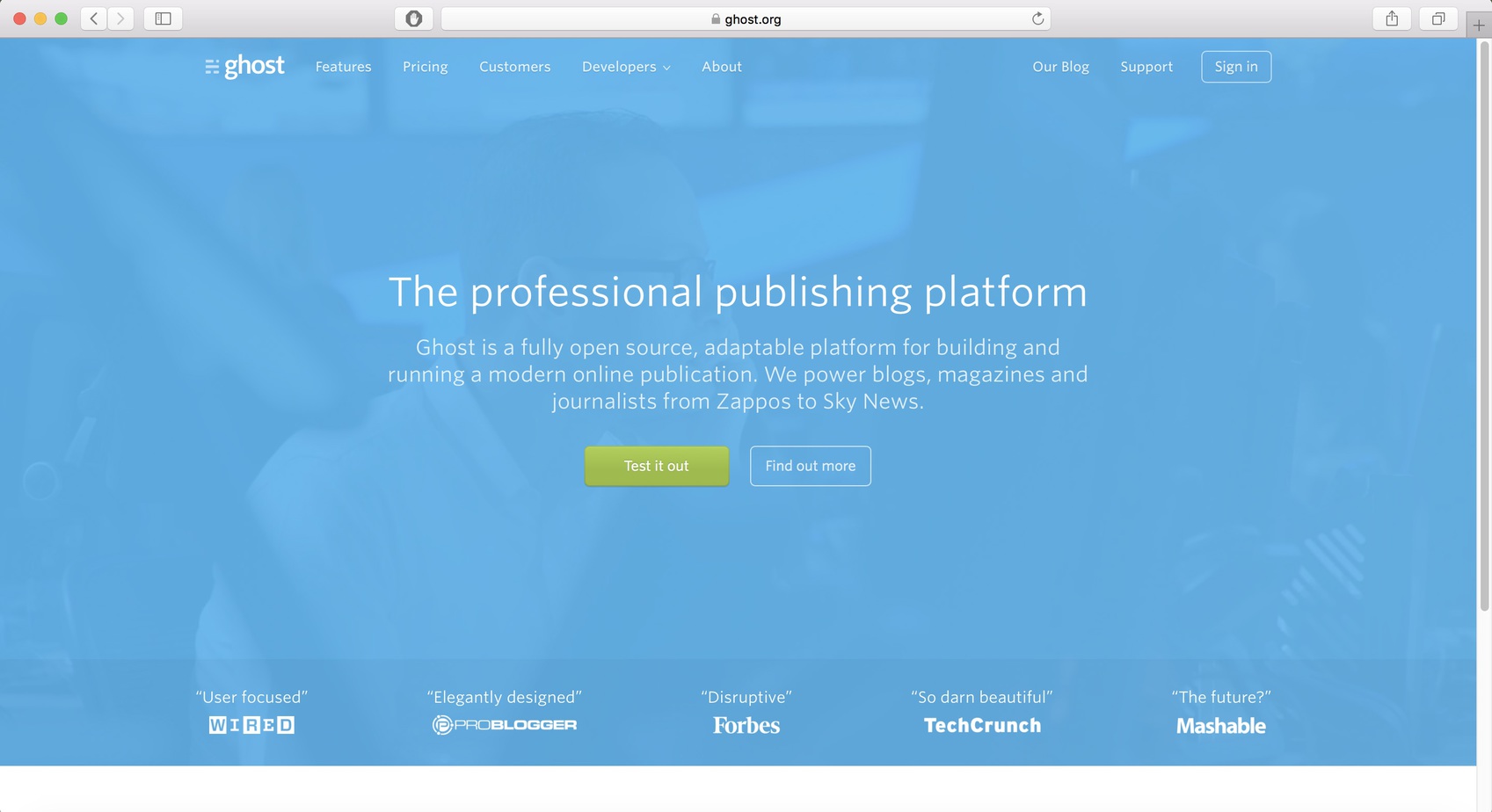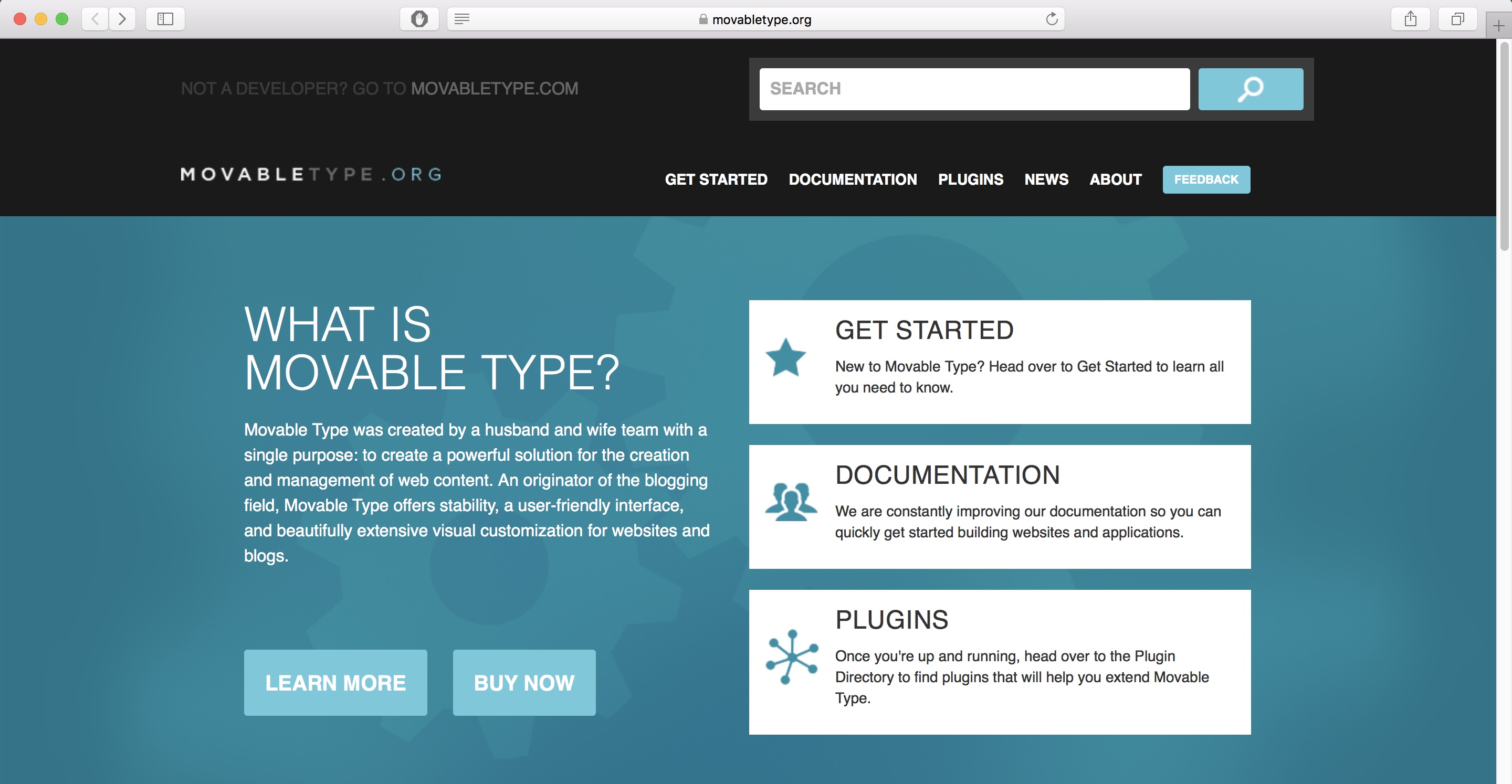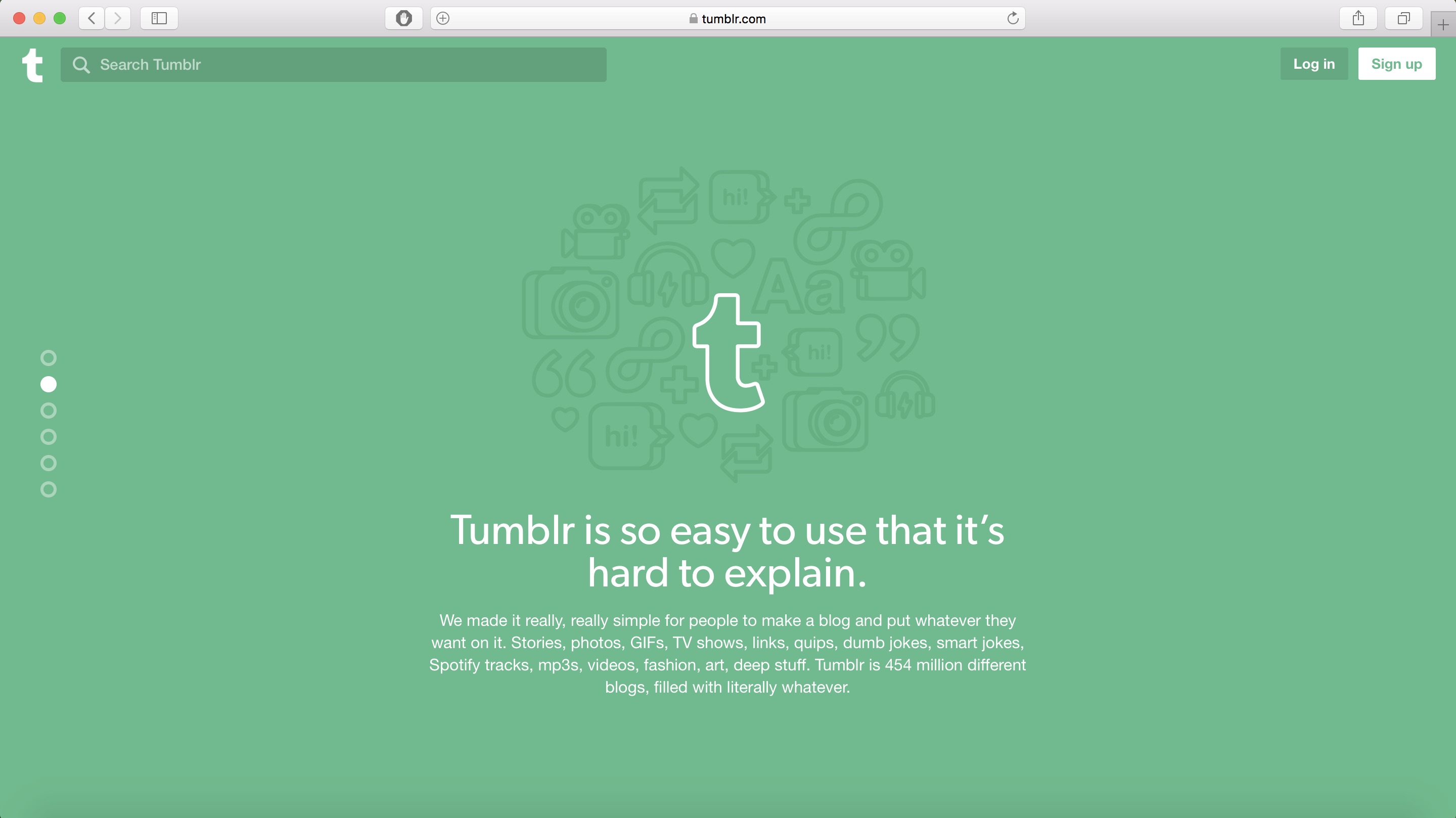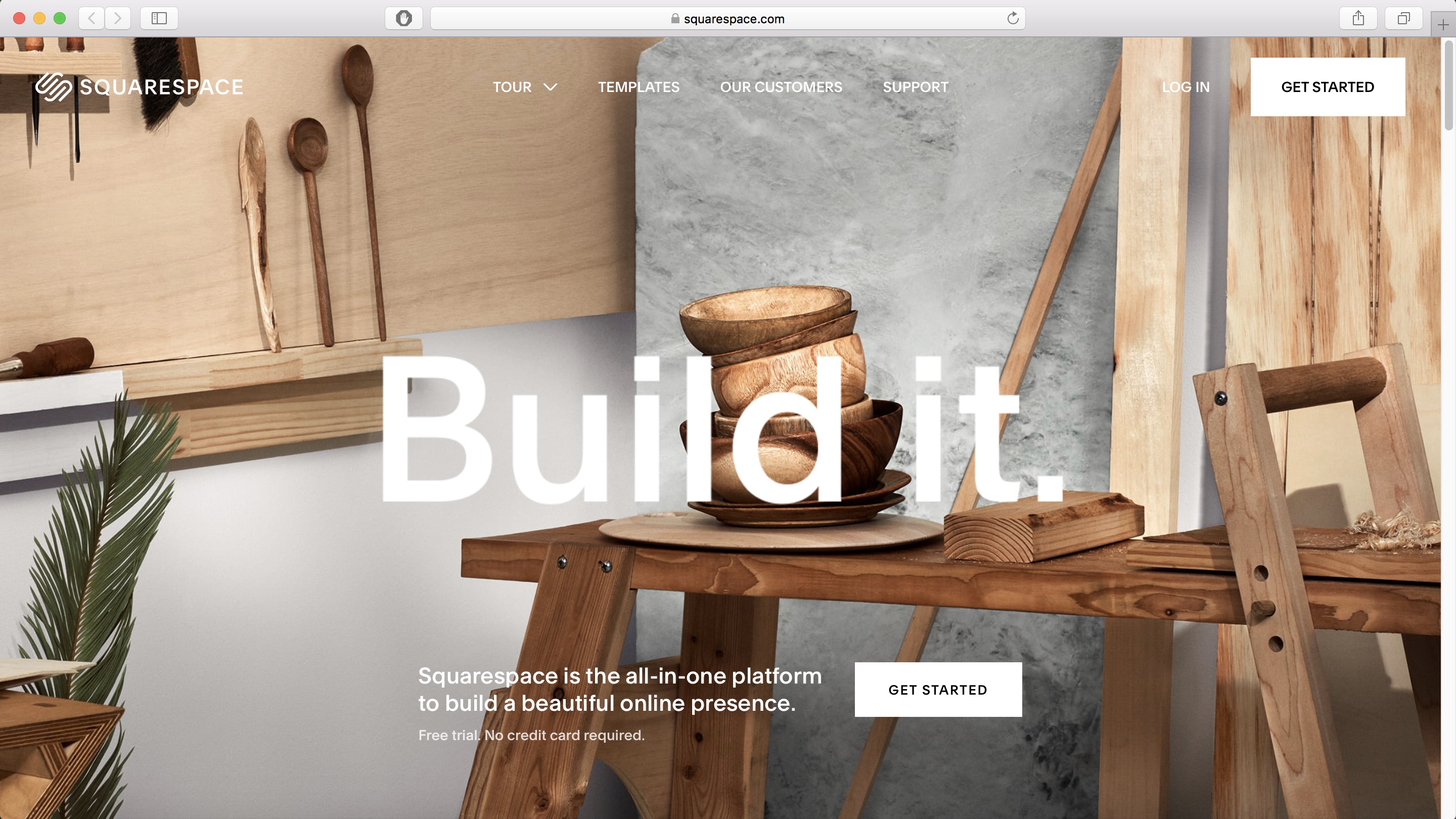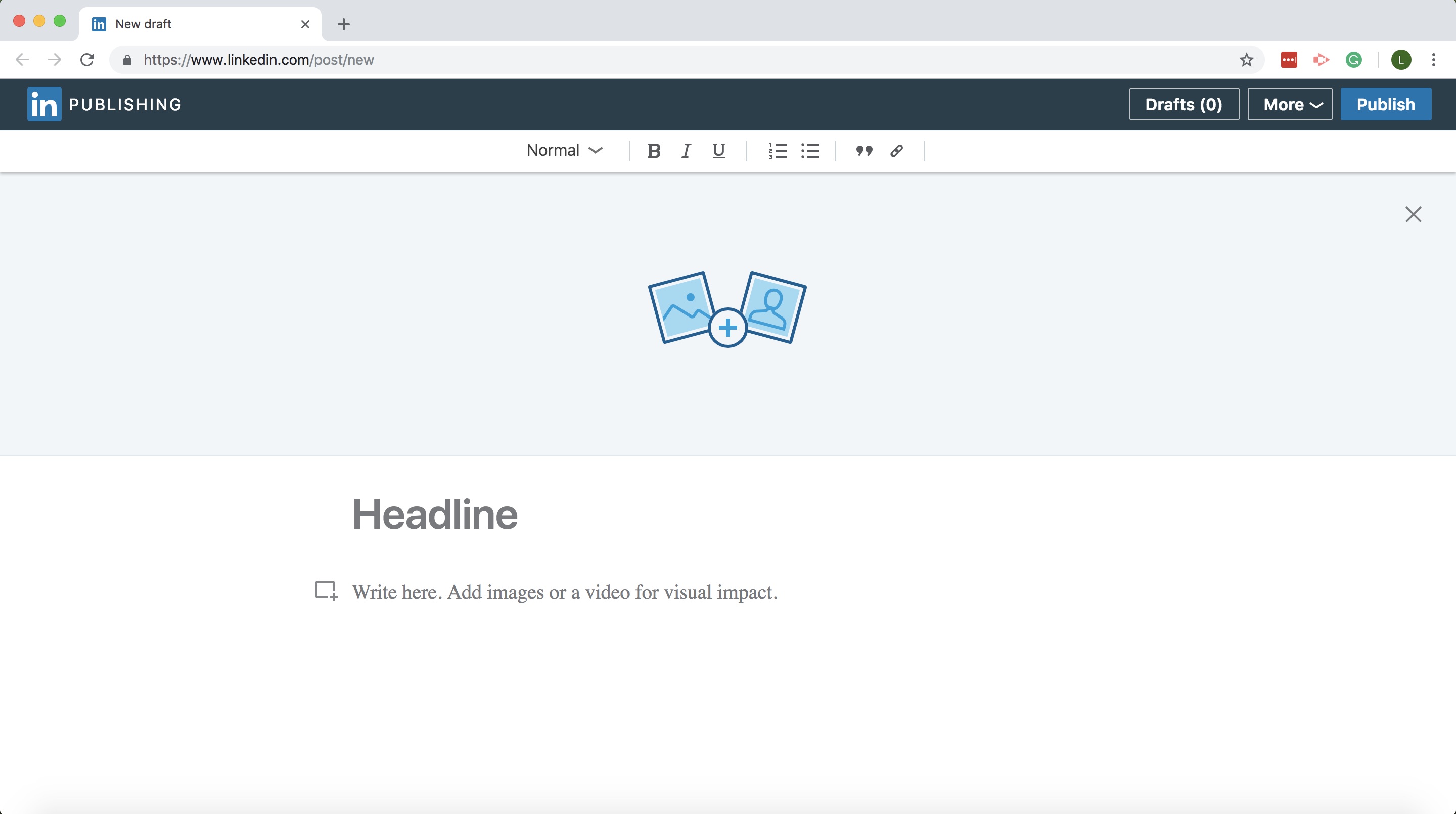Thinking to start or better your online presence? Blogging is an ideal way to do that. You can write about anything you care about. Write about your interest, projects, or businesses and share it with the public. While a good writer needs a pen and paper, and plenty of guts, an online writer needs a blogging platform too.
Most platforms that we cover are based on Content Management Systems (CMS). With so many options it can be a challenge to choose the one that really suits your need. Worry not, in this article we curated some of the best choices available.
Starting a blog — What are you going to do?
Before we talk about the blogging platforms, you need to figure out your needs. Will you do it as a hobby, to increase brand awareness or as a full-time job?
First, let’s talk about the different types of blog, before picking the right platform.
Personal blog
A personal blog platform is excellent for blogging as a hobby or building a brand online. For example, if you’re into a specific field, say legal consultation, you can start writing about legal issues or case studies. You can attract audiences and build a sort of online authority.
Collaborative or group blog
This platform is useful if you want to start a news-based website. A collaborative blog is popular among writers that focus on a single subject, like tech, politics, or climate change.
Corporate blog
The name speaks for itself — it is an excellent choice for any corporation, small or a well-established. There’s added flexibility if your company has a team that can manage the blog. Web developers, designers, writers working together can create an incredibly advanced blogging platform.
Microblogging
If you want to share, promote or create small pieces of content in any form, microblogging might be for you. It is a good choice if natural, organic, and dynamic contents are really your thing.
So, with those categories in mind, let’s dig in.
The best blogging platforms ranked
1. WordPress.org
Initially released in 2003, WordPress is now the most popular platform for blogging. At the time of writing, 31.9% of the top 1 million blogging websites use it as their platform. Although WordPress is open-source and developed by the community, it is closely associated with Automattic. This company is responsible for managing WordPress.com. WordPress actually offer two distinct services, WordPress.com and WordPress.org. We’ve written a detailed article explaining the two.
WordPress.org
Pros:
- The software is free and open-source.
- Provides control over every aspect of your website
- There are free and premium themes and plugins available, which allow you to beautify and customize your site.
- Online forums and the community are ready to help and give support should issues occur.
Cons:
- Managing and customizing it can be difficult, particularly if you’re new to web development.
- No hosting included, it means you need to set up a separate hosting service.
Price: The software is free, but you need to get a domain and hosting service.
Perfect for: WordPress.org is incredibly flexible. Personal, collaborative, and corporate blogs will find a great home with this service.
WordPress.com
Pros:
- Easy to set up. Start blogging in minutes
- WordPress.com takes care of the back-end
- Hosting and subdomains included
- Costs $0 to start
Cons:
- Limited options to extend your website’s functionality
- You don’t own the site, WordPress.com can block it if you do not comply with their policy.
Price: WordPress.com is basically free. But you need to pay for advanced features. It offers multiple plans, starting from $5 up to $25 a month depending on your circumstance.
Perfect for: Personal bloggers and anyone looking to start blogging with no investment at all.
2. Blogger
Blogger is one of the early pioneers of blogging — started in 1999. Google runs it, that means you get all the perks that come with it. For example, you can monetize your website with Google Adsense. Blogger is a good choice if you’re starting out. It offers HTML editing and widgets that other blogging platforms for beginners don’t. As for innovation, it is safe to say that blogger has become a shadow of its former self — it’s rarely updated. Eventually, many users switched to other platforms as their sites grew and more features were required.
Pros:
- Start blogging for free
- Easy to set up, with the back-end covered by Blogger
- Hosting and subdomain included
- Supported by Google and its robust infrastructure
- Free SSL certificate, worth upwards of $25
Cons:
- Limited to basic blogging tools
- Blogger does not update regularly
- Limited template selection, third-party templates often have low quality.
Price: Blogger is free, unless you need a custom domain.
Perfect for: Personal bloggers.
3. Medium
Launched by a Blogger founder in 2012, Medium is an online publishing platform that aims for a specific market. It is now grown into a community of expert bloggers, writers, and journalists. Users cannot change the Medium theme, in fact, all of them use the same looking site. Medium uses special algorithms and has an editorial board curating stories on its platform. If you want to experiment with blogging and share some opinions, this might be a good starting point.
Pros:
- Easy to use, no need coding knowledge whatsoever
- Built-in audience and community of people with similar interest
- Other users can provide a valuable suggestion for your articles
- You can make money through Medium’s Partner Program
Cons:
- Limited features in term of design and plugins
- Medium controls your audience and publications
Price: Medium is free, but to get unlimited access you need to join their Membership program.
Perfect for: Hobby blogger and professional who want to increase their brand awareness.
4. Ghost
Ghost is an open-source platform maintained by a non-profit organization that provides a clean and straightforward interface. As for the business model, Ghost relies on a revenue stream from its paid services. Ghost initially developed through a Kickstarter campaign led by former WordPress executive in 2012. It received funding from notable people and major companies. Ghost puts writing at its core; it means users should focus more on the content rather than advanced functionality. After all, this a platform developed as a simpler version of WordPress.
Pros:
- Highly optimized for blogging and writing
- Very clean and intuitive user interface
- Built-in SEO capability
- Free and premium theme available to download
Cons:
- Does not offer customization as powerful as WordPress
- No extensions or third-party plugins available
Price: Ghost software is free, but you need to arrange the hosting yourself. Ghost(Pro) is available as a paid service; price starts from $29 a month.
Perfect for: Ghost’s all-around service is suitable for personal, collaborative, and corporate blogs, especially if you opt for a simplified version WordPress.
5. MovableType
MovableType is a weblog publishing system developed by Six Apart, initially released in 2001. The idea behind MovableType is to simplify the creation, publishing, and managing of multiple websites and blogs in a single system. MovableType is capable of managing a community of readers within a website. It’s designed to support unlimited websites without affecting the overall experience. As for flexibility, MovableType offers templates which can be customized with access to the source code for developers.
Pros:
- It can handle high traffic websites with small computing resources.
- Supporting unlimited user, website, and blog creation without affecting page loading time
- With MovableType developers can customize the theme, plugin, and API code to suit their needs.
Cons:
- Installation can be complicated for beginners
- Limited numbers of plugins compared to other popular CMS
Price: MovableType provides a free trial, while the Pro license comes at $499 a year.
Perfect for: It caters best for collaborative and corporate websites.
6. Tumblr
Tumblr is a microblogging and social networking site founded in 2007. It is the right platform for bloggers with an irregular posting schedule and theme, who produce short-form content. Tumblr is different than any other blogging platform, as it focuses more on the social aspect. Like any social media platform, it includes social features like following blogs, reblogging, and built-in sharing tools.
Pros:
- Tumblr is free and easy to use
- It is a microblogging platform as well as social media site, so it integrates well with other social platforms
Hosting and subdomain included - Great for sharing videos, GIFs, images, polls, quizzes, and memes
Cons:
- Limited features and you can’t extend its functionality as your site grows
- No extension and plugins available
Price: Tumblr is free to use. You can set up a custom domain but need to arrange it elsewhere.
Perfect for: It caters best for microbloggers.
7. Squarespace
Squarespace offers services for website building and hosting launched in 2003. Its service is good for people with no prior coding knowledge, working in the creative industry. Using this platform, users can build a website by just drag-and-dropping website elements. On top of that, the pre-built themes come with great designs and aesthetics too.
Pros:
- Easy to use and build a website by just dragging and dropping
- Hosting and custom domain included
- Professionally designed templates available to use
- Offers built-in eCommerce stores
Cons:
- Limited features
- A little bit pricey and can get more expensive over time
Price: Squarespace is a paid service, starting at $12 a month for a personal website and $26 a month for an online store.
Perfect for: Squarespace caters best for creative industry websites and business websites.
8. Wix
Wix is a cloud-based web development platform founded in 2006. Same as Squarespace, Wix offers a website building service for people with no coding experience by using drag-and-drop tools. The Wix editor offers rich features which help beginners develop a stunning website. It is also a good alternative compared to Squarespace if you’re on a budget, Wix is free. In terms of SEO, Wix does not offer best practices.
Pros:
- Free plan available including hosting and subdomain
- Quick and easy to set up
- Powerful web editor to design a website using only drag and drop
- Integrated with Wix store to customize your website template and plugins
Cons:
- The free account is limited and shows Wix brand and ads on your site
- Limited customization capabilities compared to other platforms
Price: Wix basic service is free, but the price can add up if you move to a premium plan. It starts from $4.50 to $24.50 a month depending on the circumstance.
Perfect for: Wix is suitable for a personal blog, people in the creative industry, and business owners.
9. Weebly
Weebly is a web hosting company oriented towards eCommerce, founded in 2006. Even so, people also use it for blogging. Weebly is in the same market segment as Wix and Squarespace, which helps people with no coding experience build websites. What distinguished it from the other two is the ability to customize the site by adding more built-in features. In terms of SEO, although it is not too impressive, Weebly provides the basic.
Pros:
- Free plan available for a trial before upgrading to premium plan
- Hosting and subdomain included
- Drag-and-drop website builder with no technical knowledge required
Cons:
- Limited built-in features and you can’t add new ones
- May restrict site’s long-term development for being a full-featured blog
Price: Weebly basic plan is free. It offers two separate premium plan for website starting from $5 to $25 a month, and online store from $12 to $38 a month.
Perfect for: Weebly is suitable for personal blog. Small to medium business owner might also opt its services.
10. LinkedIn Blog
This might be a little surprising, but LinkedIn nowadays has become an excellent place for professional blogging. Think about it as Medium, but with a different audience. With linked in you’ll be addressing businesses-people, and corporations, growing your brand or even establishing authority in the circle. Although it is not as powerful as other platforms in term of functionality, you can get plenty of exposure should you craft a fascinating piece targeted at the right crowd. Your articles will also automatically attach your profile which can increase your online CV visibility. And remember, all of those benefits come for free!
Pros:
- Free blogging platform attached to your LinkedIn profile
- Allows you to reach an existing community of people with business and professional background
Cons:
- Not as powerful as platforms dedicated for blogging
Price: Free
Perfect for: Professional and companies can use the LinkedIn blog to increase their authority and brand awareness.
Conclusion
Huff, we covered a lot, haven’t we? So there you have it, all the popular blogging platforms available to use based on your budget, needs, and intention. Choosing the most suitable one can be subjective, as we all have different needs. Besides, not all platforms are created equally, as some offer functionalities and support that others don’t.
Wondering what our choice of platform is? WordPress is a no-brainer for us. We use it both for blogging, 000webhost.com and our sister website hostinger.com.
Finally, we hope that this article helps you choose the right platform based on your needs.


